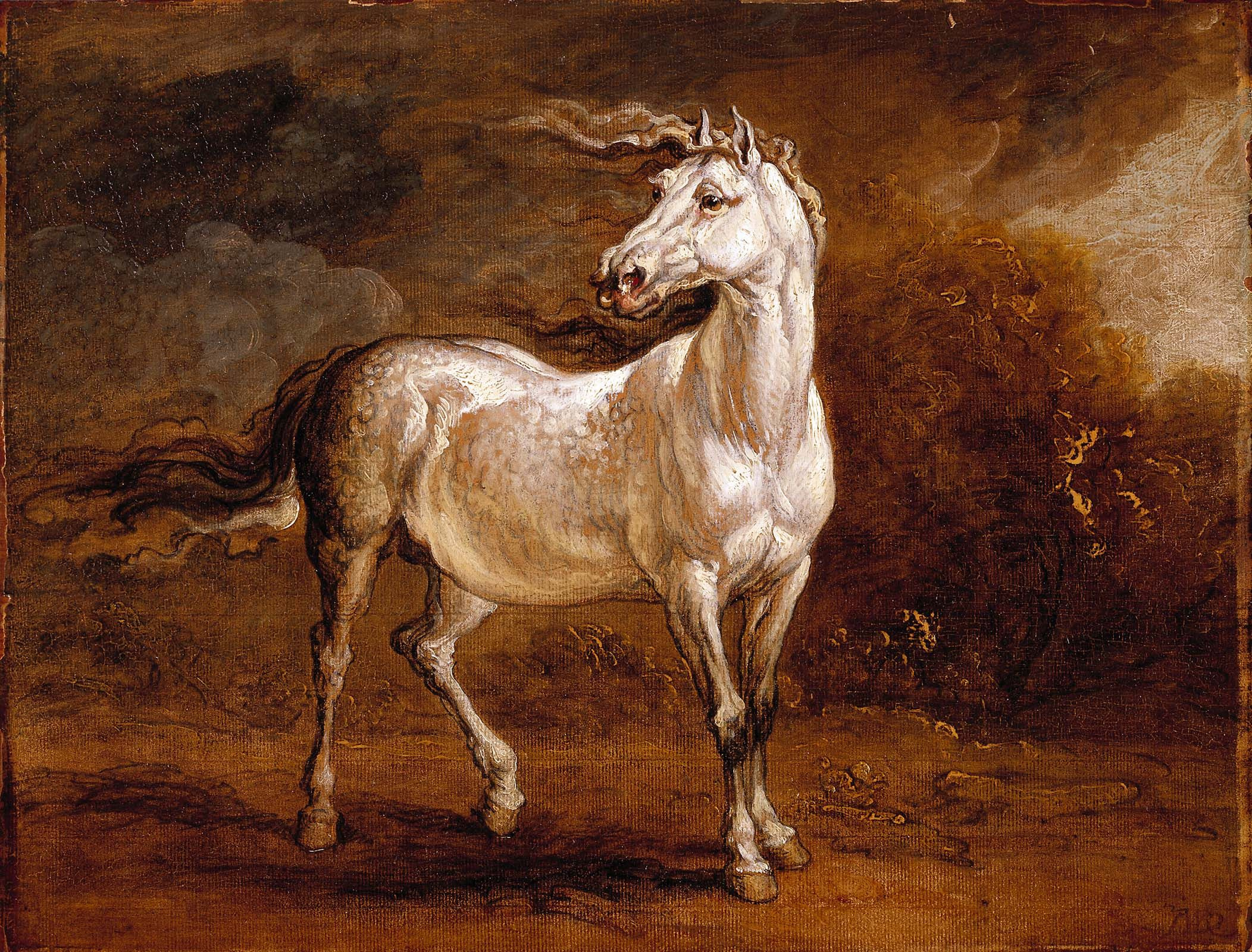
A COSSACK HORSE.
NOT long ago, in front of one of the theatres of St. Petersburg, two ladies, having hired a sledge, got in, and told the coachman where to drive.
The throng of carriages and people was very great there, and the noise was considerable, and the isvoshtchik's horse, which was apparently rather an excitable animal, reared and backed and jumped about, but would not start. One of the policemen standing near, exasperated at last by the obstinacy of a creature which vas keeping, other, vehicles from driving up, struck the horse on the side with the flat of his sword to make it move on.
But judge of his surprise when the animal only responded by falling down on the snow, and lying there apparently dead! Some of the bystanders came forward, and with the driver attempted to get the horse on its legs again, but it was of no avail; and the ladies were just about to leave the sledge and take another, when they noticed two Cossack officers standing near and laughing immoderately.
At that moment one of them, nudging his companion with his elbow, put his fingers to his lips and gave a low, peculiar whistle. The effect was magical. The horse started to its feet, its head up, its ears forward, its whole attitude one of diligent attention.
Then the officers came forward, apologized for their 'seeming rudeness, accompanied the sledge a few paces out of the crowd, and explained the mystery.
The horse was a Cossack, and probably had served in the late war. Now, Cossack horses are trained by their masters to obey certain signals.
For instance, a stroke of the flat of the sword is the sign that they are to lie down that the enemy may fire over their heads. The peculiar whistle is again the order to rise.
The officers had seen in what school the animal, had been taught, and, being initiated, gave the signal, which caused the intelligent creature to rise of its own accord. Another peculiar sound started the horse in a rapid trot, which dragged the light sledge swiftly over the snow, while the officers remained behind, doubtless not a little entertained with the comical adventure.
—S. S. Visitor.
TEETOTAL.
THE word teetotal is a common provincial phrase used in Lancashire, England; and it is generally applied to workmen being dismissed from their employ, and is intended to signify an entire discharge, a complete dismissal.
A good man, named Richard Turner, speaking at a meeting in Lancashire on the subject of abstinence from strong drink, said he gave it up teetotally,
which meant that he gave strong drink
"an entire discharge."
The term was very forcible and well applied. The people at once understood its complete meaning, and it seemed to them so fully to express their feelings about strong drink that it passed into common use, and spread from Lancashire all over England, and since then into all those countries where true temperance has been taught.
A GOOD WAY.
Two little girls, Lily and Violet, were playing in a yard where they had hung up some twine for a clothesline, and were washing their dolls' garments in a diminutive tub, and hanging them out to dry. Along came Lily's brother, Master Jack, the juvenile tease, and with one sweep of his hand jerked the whole day's washing from the line and scattered it on the grass. Lily burst into tears at once. Violet was saddened, too, but the necessity of playing peace-maker in the impending family quarrel was the first thought in mind; so she said soothingly, "Never mind, Lily, let's play Jack was a high wind."
Syracuse Herald